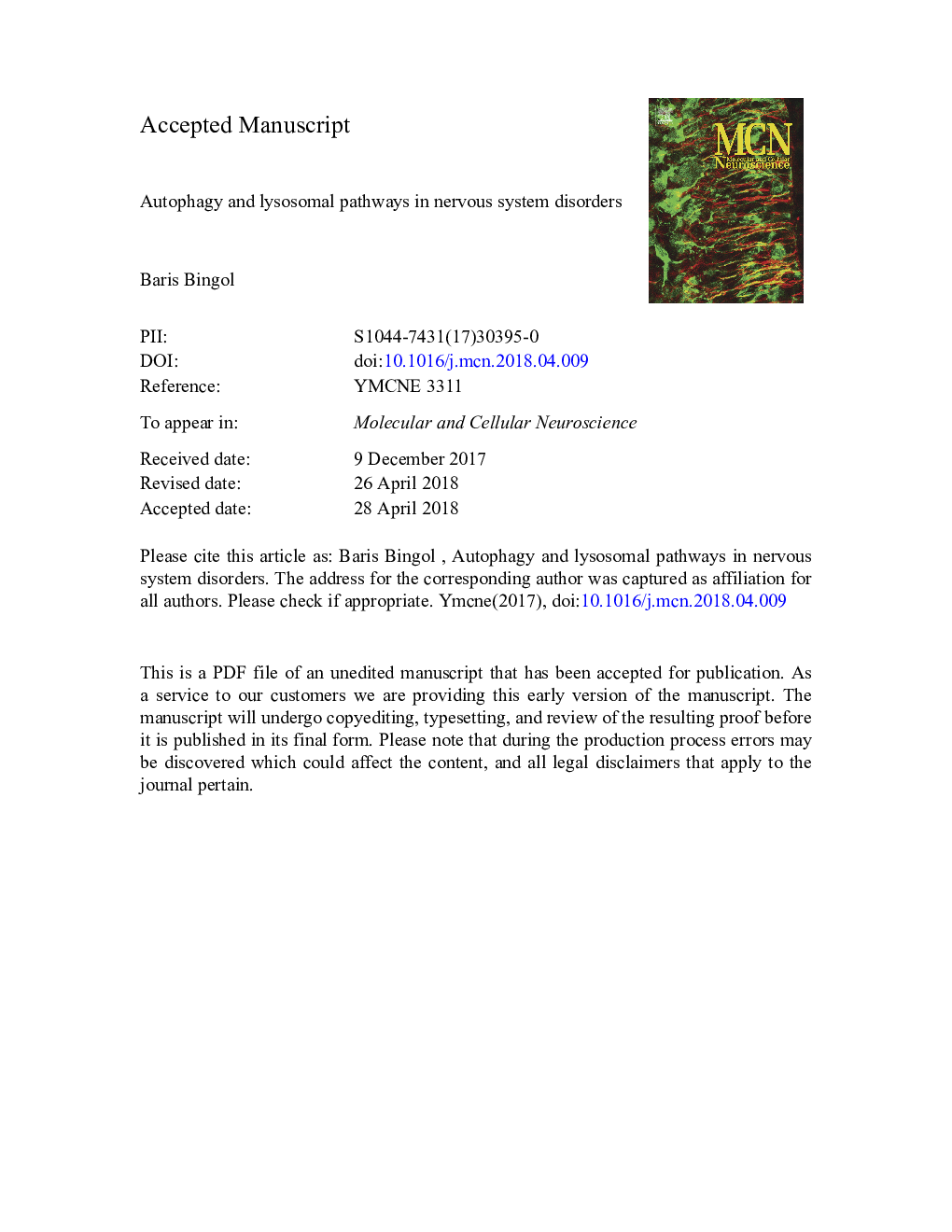| Article ID | Journal | Published Year | Pages | File Type |
|---|---|---|---|---|
| 8962272 | Molecular and Cellular Neuroscience | 2018 | 235 Pages |
Abstract
Autophagy is an evolutionarily conserved pathway for delivering cytoplasmic cargo to lysosomes for degradation. In its classically studied form, autophagy is a stress response induced by starvation to recycle building blocks for essential cellular processes. In addition, autophagy maintains basal cellular homeostasis by degrading endogenous substrates such as cytoplasmic proteins, protein aggregates, damaged organelles, as well as exogenous substrates such as bacteria and viruses. Given their important role in homeostasis, autophagy and lysosomal machinery are genetically linked to multiple human disorders such as chronic inflammatory diseases, cardiomyopathies, cancer, and neurodegenerative diseases. Multiple targets within the autophagy and lysosomal pathways offer therapeutic opportunities to benefit patients with these disorders. Here, I will summarize the mechanisms of autophagy pathways, the evidence supporting a pathogenic role for disturbed autophagy and lysosomal degradation in nervous system disorders, and the therapeutic potential of autophagy modulators in the clinic.
Related Topics
Life Sciences
Biochemistry, Genetics and Molecular Biology
Cell Biology
Authors
Baris Bingol,
